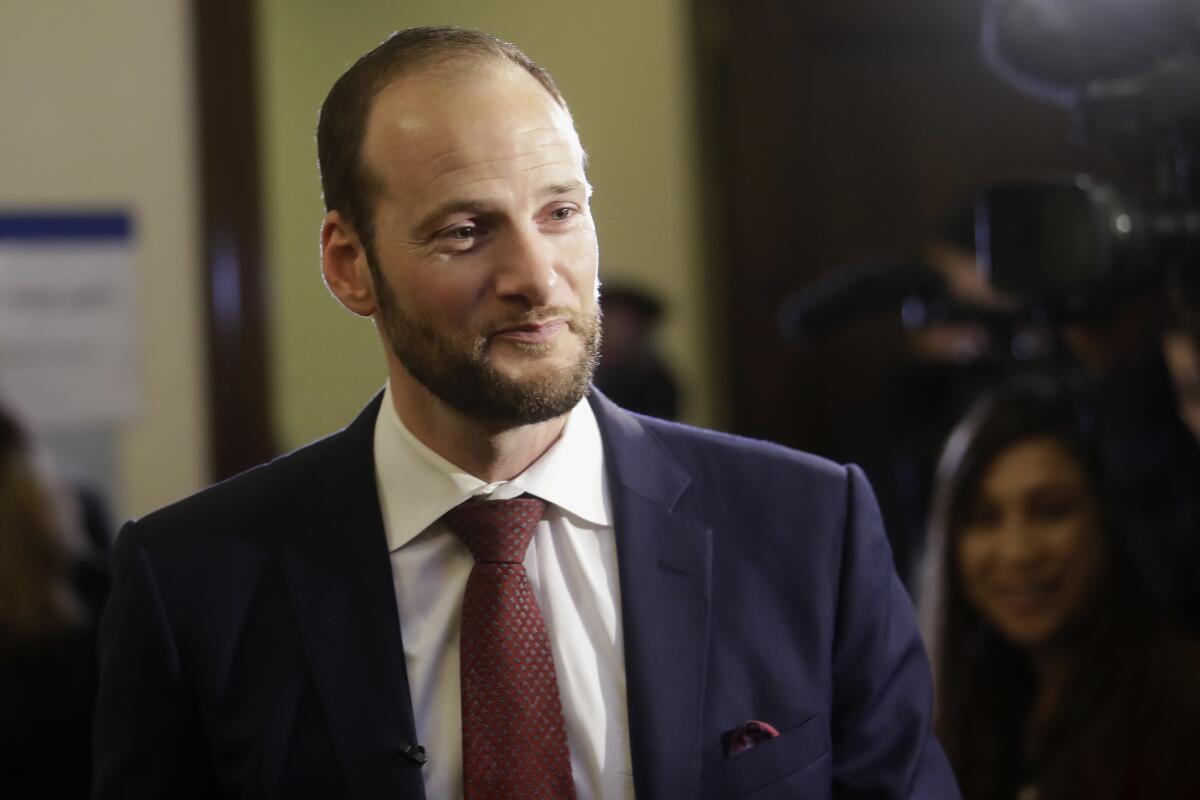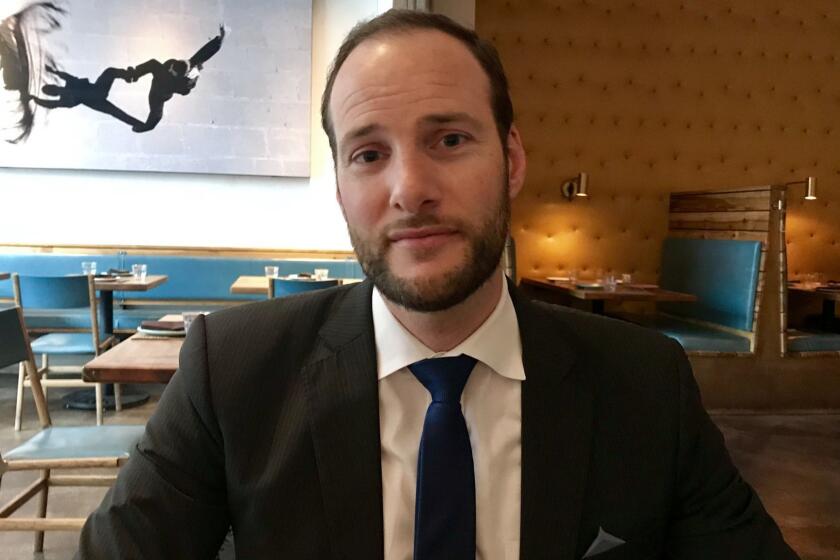Op-Ed: Andrew Cuomo’s act of clemency in New York reaches all the way to California

- Share via
Andrew Cuomo, now embarked on his own defiant quest for some sort of redemption, used his final hours as New York governor to grant clemency to a man who had seemed destined to die behind bars.
Like all acts of clemency, it was both an affirmation of the power of redemption and an act with personal and political consequences, in this case stretching across the country to California.
It might seem a relatively safe gesture to enable a 76-year-old who has spent 40 years in prison with a spotless record to apply for parole. But the prisoner is David Gilbert, a former leader of the radical Weather Underground who was an unarmed getaway driver in a botched 1981 Brinks armored truck robbery that left two police officers and one security guard dead. Cuomo’s last-minute commutation of Gilbert’s 75-years-to-life sentence met with predictable outrage from the law enforcement community, who will oppose his release when he appears before the parole board.
Gilbert has attracted many prominent supporters over the years, none more fervent than his son, Chesa Boudin, who was 14 months old when his father and his mother were arrested after the Oct. 20, 1981, shootout in suburban New York. When Boudin could barely sign his name, he protested a decision to abolish the overnight trailer visits that gave him his only chance to get to know his father. “It doesn’t seem fair to take away these trailer visits after years of having them work so well,” the 10-year-old Chesa scrawled in a note to the prison warden.
That preoccupation with fairness became a trademark that eventually propelled Boudin to law school, to a job as public defender, to a crusade against cash bail. And then, the son of a man who represented himself at trial and refused to acknowledge the legitimacy of the court made a move in some sense as revolutionary as his parents’ acts. He ran for district attorney in San Francisco, part of a wave of progressive prosecutors committed to ending mass incarceration and rectifying racial inequities that fill the jails with Black and brown men.
My freshman year at Yale I got a letter from my biological father with unwelcome news.
At his January 2020 inauguration, Dist. Atty. Boudin thanked his father, who “can’t be here today because he sits in a cage,” and his mother, Kathy Boudin, paroled in 2003 after serving 22 years for her part in the Brinks robbery; she, too, had been unarmed, sitting next to Gilbert in the getaway car. “You taught me that we are all more than our worst mistakes,” Chesa said, addressing Kathy, who sat in the front row. “Thank you for teaching me about forgiveness and redemption.”
Over the decades, Gilbert has become a mentor for generations of activists behind bars and beyond, respected for his intelligence and passionate commitment to progressive causes. He maintains an extensive correspondence with dozens of younger organizers. He agitated for AIDS education when the frightening, deadly disease first raged, co-founding a peer counseling program in two prisons. He wrote a book of essays, and then, at the urging of his son, a memoir titled “Love and Struggle,” about his years as a leader of Students for a Democratic Society and the Weather Underground, and his ill-fated turn away from peaceful resistance.
The most difficult conversation Boudin had when he decided to run for district attorney was in his father’s prison visiting room. “I was wary, even unhappy about it,” Gilbert wrote to me. “I’m skeptical about what one can accomplish in the money-loaded arena of electoral politics and at the same time I was concerned on a more personal level for him about the demands and stresses entailed. ... I reconciled myself when I saw how he used that arena to get out much more widely a clear critique of the criminal justice system.”
That critique, deeply rooted in his own experience, has made Boudin a lightning rod in the national debate over criminal justice policy. He seems certain to face a recall election early next year, just halfway through his term. His father’s clemency is already being weaponized in that battle. (“This is what pure power looks like folks. You can kill without accountability,” the recall campaign tweeted in response to the clemency news.)
From childhood on, Boudin has lived with a foot in two vastly different worlds, raised in the intellectual salon of his adoptive parents, former Weather Underground leaders Bill Ayers and Bernardine Dohrn. “Every day I combine two lives,” he wrote in his college application essay, “one, immersed in the stability of privilege and the other, meeting the challenges of degradation. Oddly enough, wrestling with these worlds has extended my vision and generated a plethora of possibilities.”
That those possibilities would include a job in which he sent people to prison would not have seemed plausible. But in a 2004 letter to Gilbert on his 60th birthday, Boudin foreshadowed the throughline between his parents’ activism and his own. He had grown up infused with a deep tradition of “optimistic, open-minded engagement in local, national, and global politics,” he wrote. “It is this legacy that has done the most to place me in a position to continue your struggle for a better world while avoiding the kinds of mistakes that led to the murder of those three men and to your life behind bars.”
When Chesa Boudin was married in San Francisco’s Golden Gate Park in November 2019, David Gilbert was in attendance as a larger-than-life cardboard cutout, greeted by Chesa and his two mothers as they walked him down the aisle. Boudin’s first child was born Friday. Perhaps a flesh-and-blood Gilbert will soon be able to embrace his son and grandson, freed by an unexpected act of clemency from that life behind bars.
Miriam Pawel is the author, most recently, of “The Browns of California: The Family Dynasty that Transformed a State and Shaped a Nation.”
More to Read
A cure for the common opinion
Get thought-provoking perspectives with our weekly newsletter.
You may occasionally receive promotional content from the Los Angeles Times.











